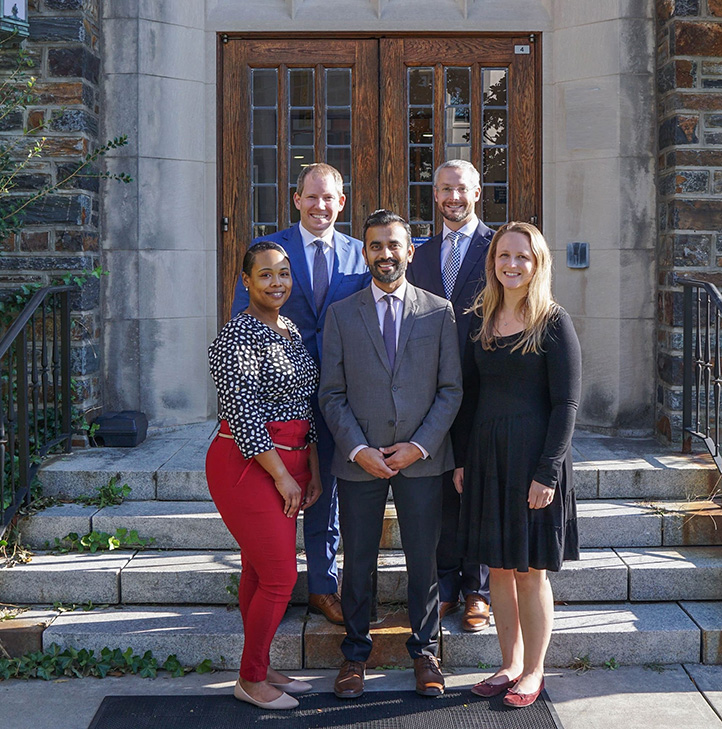Duke University Hospital
Durham, NC
Purpose
The formation, implementation, outcomes, and impact on retention of a health system based pharmacy technician training program is described. The program seeks to produce graduates well equipped for employment within our health system, eligible for certification by Pharmacy Technician Certification Board (PTCB), and to develop a consistent source of well-trained technicians to meet the needs of the health system.
Program Description
Our program’s ideal candidate is one who is seeking to begin or transition to a career in health system pharmacy. Our affordable, accredited program, skills candidates to become a certified pharmacy technician. A distinguishing feature of our program design is the pace of curriculum, designed to be completed in 11 weeks. The program is accredited by American Society of Health-System Pharmacists (ASHP)/Accreditation Council for Pharmacy Education (ACPE) at the entry level accreditation standard. The program is structured to enroll three cohorts annually, beginning in April, August, and January. This provides a consistent and dependable bolus of graduates for hiring managers across the department. Our program supports enrollment from internal and external to the institution. Apart from didactic content, the simulation component of our program combines both remote and onsite simulations. Following completion of the didactic and simulation content, students receive two blocks of both acute and ambulatory care of 111 hours over two and half weeks of experiential content. The program realized benefits by partnering with a digital content provider. First, the platform enabled our team to accelerate time to launch. A second benefit of the platform is the ability to conduct the programand update curriculum content. In April 2018, our institution launched our program. The program was launched to meet the pharmacy technician needs within our organization.
Program Experience
As of April 2022, our program has successfully completed 11 cohorts with a total of 41 graduates. To date, our program is retaining 90% of all graduates as employed within our health system, and graduates have achieved a PTCB passing rate of above the national average. Our technician training program has an impressive 90% retention rate from the beginning of the training program in April 2018 to present day. In comparison, the overall department of pharmacy retention rate during this same period was 31%. Our program has a graduation rate of 93%, and a job placement rate of 90% as a pharmacy technician. Our institution believes that this program has helped supply a consistent source of welltrained technicians to meet the needs of the health system, and that we have provided a superior level of clinical training to technician students at an affordable price. Our program provides a novel strategy to efficiently and effectively train pharmacy technicians, and has demonstrated improvements to our health system.
Conclusion
Establishing a pharmacy technician training program provides a mechanism to ensure continuity and uniformity as health care continues to evolve. By providing a source of well-trained pharmacy technicians, our program allows the profession to continue to achieve the overarching aims.

Back row (left to right): Tyler A. Vest and Matthew J. Kelm
Front row (left to right): Shanreika R. Breeze, Kuldip R. Patel, and Madison L. Hooker
